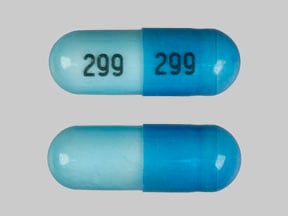
My prescription
Edit
200MG, Phenytoin Sodium Extended (60 Capsules)
Select pharmacy

CVS
$53.62
COUPON PRICE
Albertsons
$23.76
COUPON PRICE
Walgreens
$31.54
COUPON PRICE
Walmart
$61.85
COUPON PRICEPhenytoin Sodium Extended savings card
Show this card to your pharmacist
Albertsons
$23.76
BIN
ID
PCN
GRP
019876
LHA1BEF54A
CHIPPO
LHX
Powered by
More prescriptions for epilepsy
More prescriptions for epilepsy
Price history for Phenytek (brand) & Phenytoin Sodium Extended (generic)
60 Capsules, 200MG
Average retail price for Phenytek
Average retail price for Phenytoin Sodium Extended
Average SaveHealth price for Phenytoin Sodium Extended
Our price history data is based on aggregated prescription data collected from participating pharmacies in America. Our prescription data updates daily to reflect the latest price changes. If you notice a missing data point, it means there wasn't sufficient data available to generate a monetary value for that date.
We analyzed Phenytoin Sodium Extended prices for (200MG, 60 Capsules) over the last 12 months. The average retail price was $123.49, while the average price using the SaveHealth discount card was $53.59. That's a savings of approximately 56.60% when using our Phenytoin Sodium Extended coupon.
Compared to the generic version, Phenytek had an average price of $122.51 over the same time period. With the SaveHealth savings card, Phenytoin Sodium Extended is 56.26% cheaper on average than Phenytek.
*Retail prices are based on pharmacy claims data, and may not be accurate when we don't have enough claims.
Phenytoin Sodium Extended dosage forms
Dosage Quantity Price from Per unit 100MG 1 Capsule $2.63 $2.63 100MG 10 Capsules $3.84 $0.38 100MG 30 Capsules $6.52 $0.22 100MG 33 Capsules $6.92 $0.21 100MG 45 Capsules $8.53 $0.19 100MG 60 Capsules $10.54 $0.18 100MG 90 Capsules $14.56 $0.16 100MG 100 Capsules $15.90 $0.16 100MG 120 Capsules $18.58 $0.15 100MG 150 Capsules $22.60 $0.15
| Dosage | Quantity | Price from | Per unit |
|---|---|---|---|
| 100MG | 1 Capsule | $2.63 | $2.63 |
| 100MG | 10 Capsules | $3.84 | $0.38 |
| 100MG | 30 Capsules | $6.52 | $0.22 |
| 100MG | 33 Capsules | $6.92 | $0.21 |
| 100MG | 45 Capsules | $8.53 | $0.19 |
| 100MG | 60 Capsules | $10.54 | $0.18 |
| 100MG | 90 Capsules | $14.56 | $0.16 |
| 100MG | 100 Capsules | $15.90 | $0.16 |
| 100MG | 120 Capsules | $18.58 | $0.15 |
| 100MG | 150 Capsules | $22.60 | $0.15 |
| 100MG | 270 Capsules | $42.07 | $0.16 |
| 100MG | 360 Capsules | $47.32 | $0.13 |
| 100MG | 500 Capsules | $55.50 | $0.11 |
| 100MG | 540 Capsules | $57.84 | $0.11 |
| 100MG | 1000 Capsules | $84.70 | $0.09 |
| 200MG | 60 Capsules | $23.76 | $0.40 |
| 200MG | 30 Capsules | $15.63 | $0.52 |
| 200MG | 100 Capsules | $34.60 | $0.35 |
| 300MG | 30 Capsules | $19.68 | $0.66 |
| 300MG | 100 Capsules | $48.10 | $0.48 |
